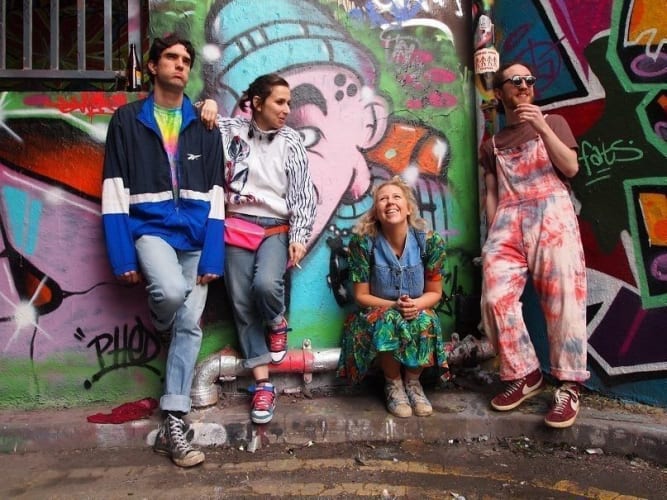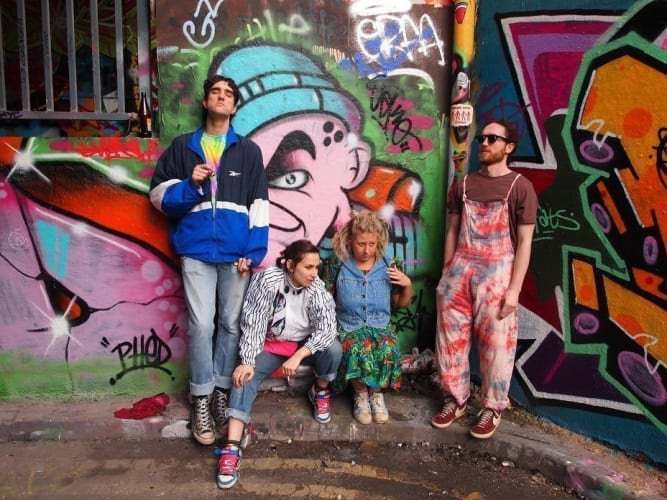There is a long history of the media and politicians stigmatising large recreational gatherings of young working class people. The unusual thing about the reaction to the rave dance scene was that this reaction included an Act of Parliament defining the music played at a rave.
Section 63 of the 1994 Criminal Justice Act gave the police the power to stop a rave taking place defining the music as “sounds wholly or predominantly characterised by the emission of a succession of repetitive beats”.
The new law was to make it very difficult for raves to take place. It also politically radicalised a great number of young people who “just wanted to dance”.
Kathryn Gardner’s thoughtful play Repetitive Beats traces an imagined group of young people in Oxfordshire from the excitement of their involvement in the rave scene of 1990 through to the after effects of the new law in 1994.
The show opens on what looks like an outdoor party. There is a central, raised sound system on scaffolding surrounded by walls sprayed with graffiti such as “No Poll Tax”. A banner tells us it is 1990. A group of youths are dancing. This is a rave, and for those involved an escape from the boredom of the rest of the week.
Tommy (Ian Horgan) regards it as somewhere to hide away from the poverty of the Oxford estate where he lives. Rebecca (Kathryn Gardner) talks about it being her “family, her food, her shelter”.
She works at the Spar with Leah (Amy Ambrose) who is initially reluctant to even check out the events, quoting the Sun newspaper as saying those at the parties were “so drugged up they ripped the heads off pigeons!” and “the floor was covered in empty ecstacy wrappers”.
However, persuaded these things didn’t happen, she starts going to the raves. Rebecca also becomes more involved, not only wanting to organise her own dance party, but joining the protest marches against the new Criminal Justice Bill.
Her friend Matt (Paul Collin—Thomas) takes a less hopeful view of what will happen and reminds her of the way the police behaved at Hillsborough.
The clampdown introduced with the new law changes their lives. Rebecca risks imprisonment, Leah switches her attention to clubs, and Tommy getting very drunk says, “it was a way out. Now I’m just angry. There’s no release anymore.”
Even in defeat, an emotional Rebecca can in a powerful speech recall that for a time, “the mean, powerful bullies were scared by people who just wanted to dance”.
The play is well performed and engaging. It encourages you to care about the characters depicted and the choices they make.
The show takes place under Waterloo station in a space called The Cavern where water runs down the walls, the wooden seats are soaking wet and the air is damp with water. The theatre company deserves a special survival award for enduring these conditions night after night. It must have been all that dancing to repetitive beats which toughened their resistance.
Maybe Home secretary of 1994 Michael Howard who introduced the Criminal Justice Act was wrong when he claimed that a rave was bad for you.


